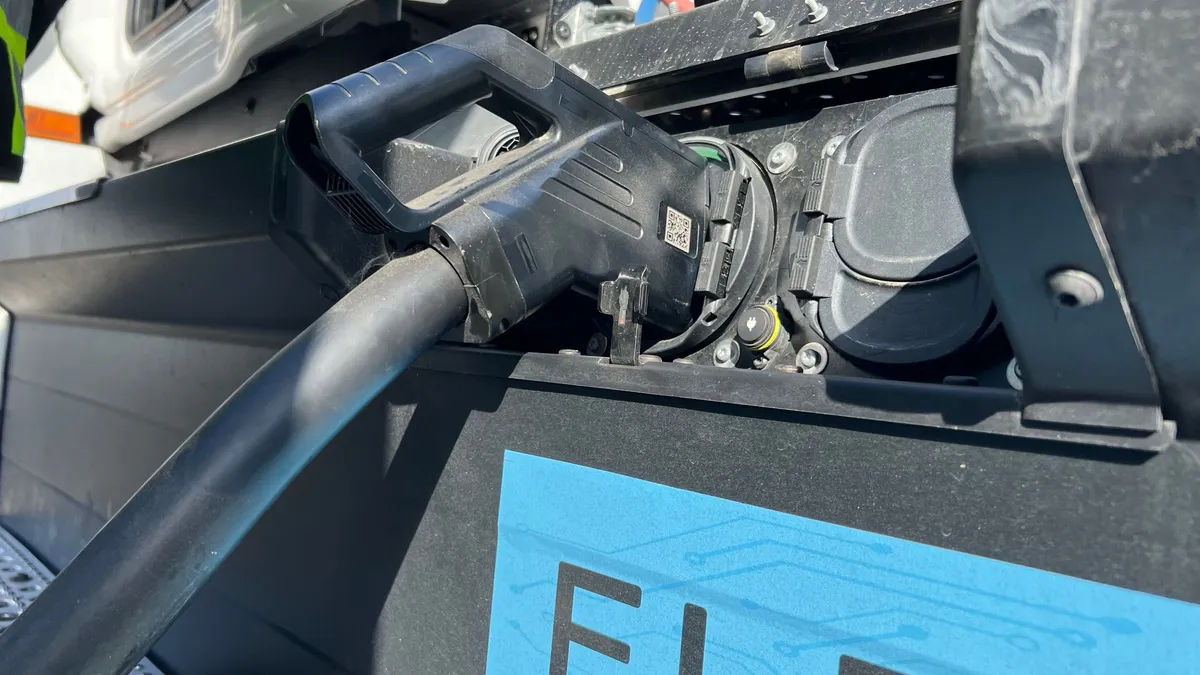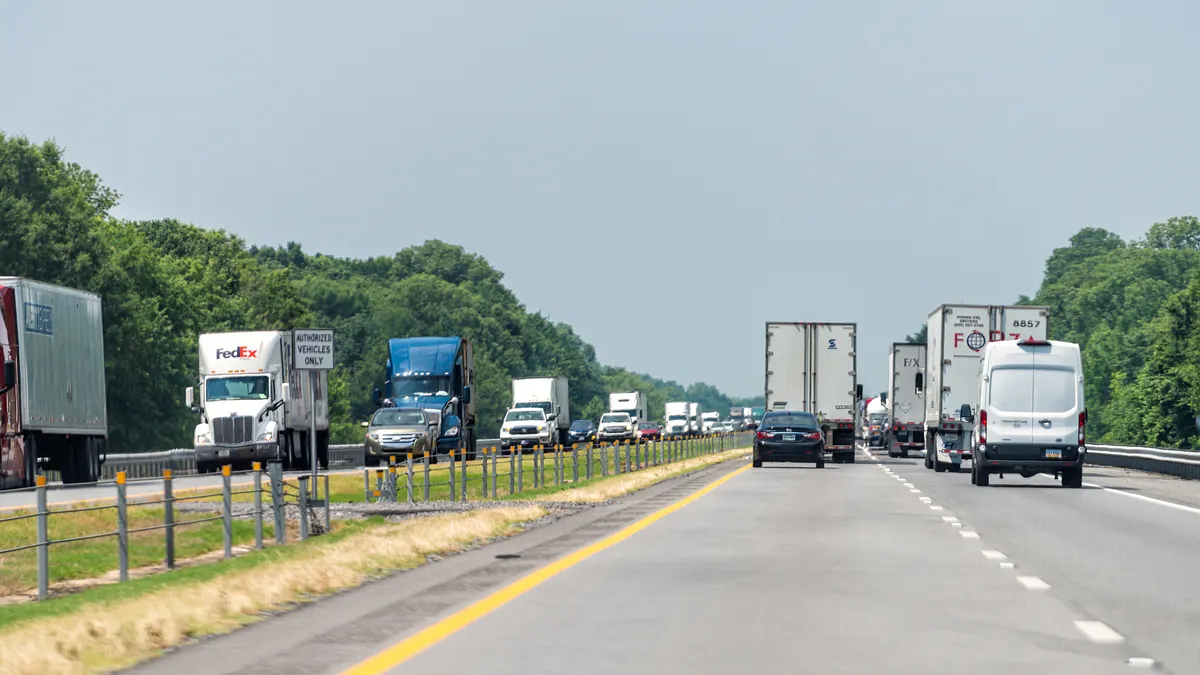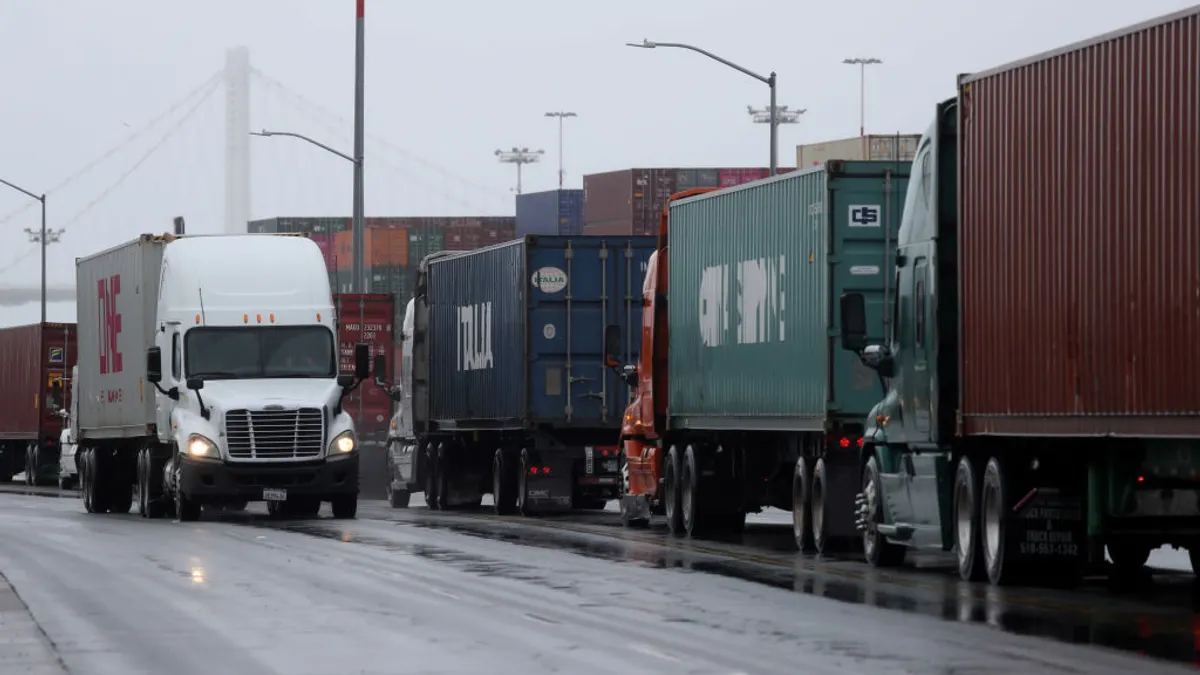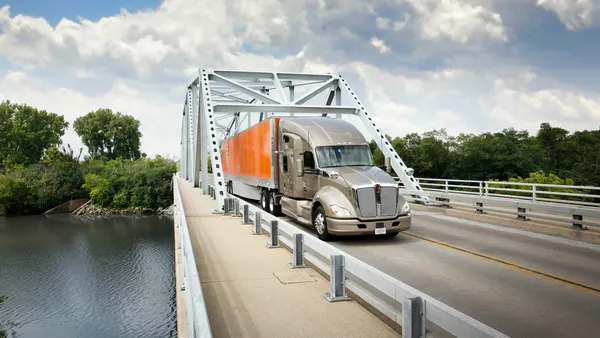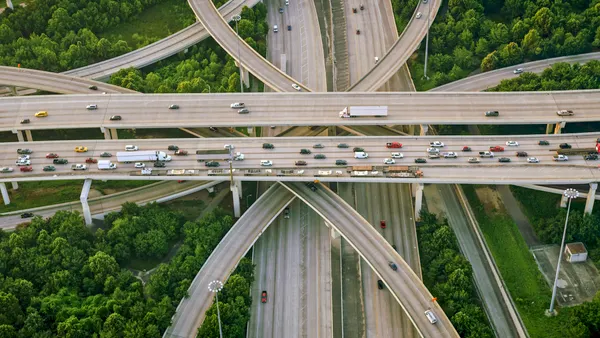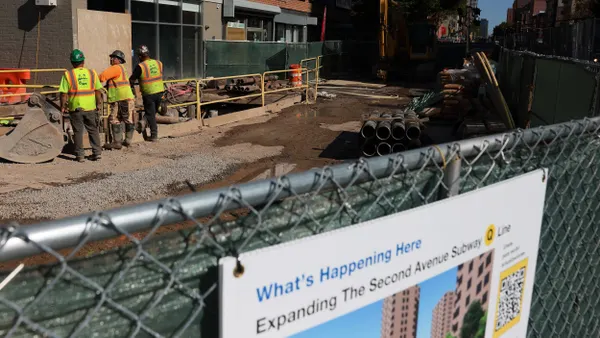California on Monday withdrew a waiver request to the Environmental Protection Agency to enact the country’s strictest trucking emissions rule ahead of President-elect Donald Trump’s inauguration next week.
In a bid to clean up the state’s severe pollution, the California Air Resources Board’s Advanced Clean Fleets rule would have required manufacturers to end the sale of diesel trucks by 2036.
“The withdrawal is an important step given the uncertainty presented by the incoming administration that previously attacked California’s programs to protect public health and the climate and has said will continue to oppose those programs,” CARB Chair Liane Randolph said in a statement to California Matters.
CARB shared the same statement with Trucking Dive Wednesday afternoon.
The regulation was expected to provide $26.5 billion in statewide health benefits from improved air quality through 2050, according to CARB. It faced staunch opposition from the trucking industry, however, which argued that its timeline for a shift to zero-emissions trucks was not feasible.
“The California Trucking Association has consistently stated the Advanced Clean Fleets Rule was unachievable,” the group’s CEO, Eric Sauer, said in an emailed statement Wednesday. “We look forward to engaging all stakeholders, including CARB and EPA, to continue the trucking industry's efforts to further reduce emissions in a technologically feasible and cost-effective manner that preserves our state and the nation's critical supply chain.”
American Trucking Associations President and CEO Chris Spear slammed CARB and other “unelected state regulatory boards enforcing extreme and unachievable environmental and labor standards” in his keynote address at the group’s annual Management Conference & Exhibition last fall.
The ACF rule had been on hold while the state regulator awaited a waiver from the EPA to move forward with it. The waiver request was submitted on Nov. 15, 2023, according to the withdrawal notice.
During public hearings on the rule, port truckers in San Pedro Bay had repeatedly asked whether the state needed an EPA waiver to implement the rule — and had been assured by CARB it did not, Harbor Trucking Association CEO Matt Schrap said during a panel discussion last month.
“Many members took the Air Resources Board at their word, despite the dozens of questions posed to them during development of ACF as to whether or not they needed a waiver from the federal government to enforce a new engine standard in California,” he said. “Their answer was ‘We do not believe we need a waiver.’”
The regulators eventually, and quietly, acknowledged a waiver might be necessary, Schrap said.
“Meanwhile, my members are thinking to themselves, ‘OK, how am I going to afford this?’” he said. “‘Where am I going to charge these vehicles? Who's going to insure them? What type of residual value do I have on this equipment? And is this something my customers are going to be willing to compensate me for?’ Because there is a much higher cost of entry for zero-emission vehicles, period, end of story.”
In a similar matter, California requested and received a waiver from the EPA in December to move ahead with a low-nitrogen oxide (NOx) emissions rule, allowing the state to heighten exhaust standards for OEMs. The process took years, though, even after hearings were held in June 2022.
Trump’s reelection in November prompted ATA to urge OEMs to pull out of their Clean Truck Partnership with CARB, saying the shifting political landscape created an opportunity to change “impossible timelines” for emissions reduction.
David Taube contributed to this article.
Editor's note: This story has been updated to include comment from the California Trucking Association and acknowledge CARB’s response to Trucking Dive.


